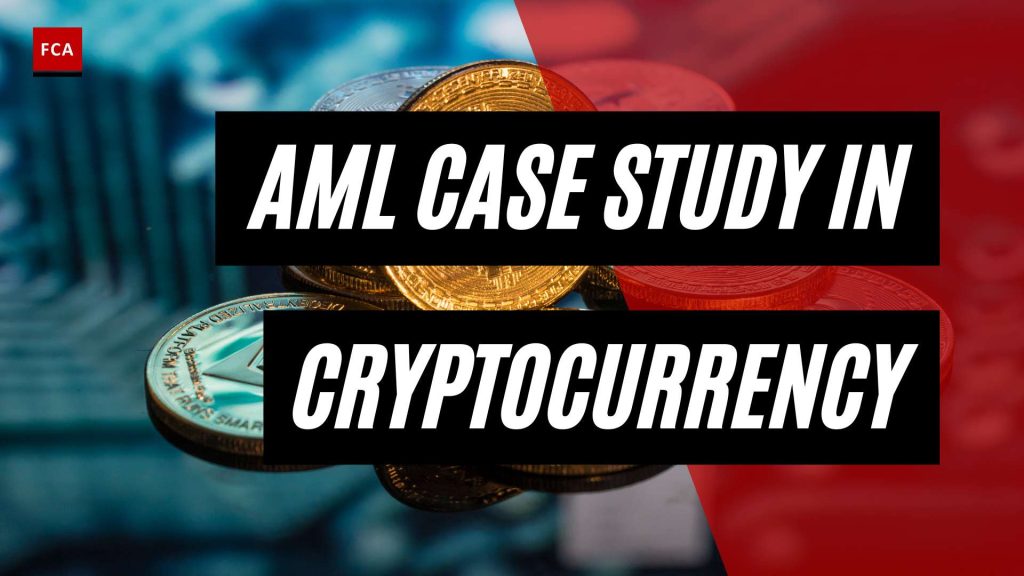AML Case Studies in Cryptocurrency
Examining real-life examples is essential in understanding the risks and challenges associated with anti-money laundering (AML) in the cryptocurrency sphere. The following case studies shed light on the illicit activities and vulnerabilities that have emerged in this evolving landscape.
BTC-E: Facilitating Money Laundering and Criminal Activities
BTC-E, a popular cryptocurrency exchange, was implicated in facilitating money laundering and various criminal activities. It allowed users to convert illicit funds into Bitcoin and other cryptocurrencies, making it difficult to trace the origins of the funds. The case highlighted the need for enhanced regulatory oversight of cryptocurrency exchanges to prevent illicit financial transactions.
Alexander Vinnik: Laundering Billions through BTC-E
Alexander Vinnik, a Russian national, was arrested for operating BTC-E and laundering billions of dollars through the platform. Vinnik’s arrest demonstrated the significant role that cryptocurrency exchanges can play in facilitating money laundering schemes. The case underscored the importance of robust Know Your Customer (KYC) procedures and diligent monitoring of suspicious transactions by cryptocurrency exchanges.
The Use of VPNs in Crypto Money Laundering
Virtual Private Networks (VPNs) have been employed by criminals to conceal their identities and carry out money laundering activities in the cryptocurrency realm. By masking their IP addresses, perpetrators can bypass geographic restrictions and conduct illicit transactions anonymously (Financial Crime Academy). This case study emphasizes the necessity of monitoring VPN usage and implementing effective detection mechanisms to combat money laundering.
Privacy Coins and Their Role in Illicit Activities
Privacy coins, such as Monero and Zcash, offer enhanced anonymity and privacy features that attract individuals engaged in illicit activities. These cryptocurrencies utilize sophisticated cryptographic techniques, making it challenging to trace transactions and identify the parties involved. The emergence of privacy coins has presented novel challenges for AML professionals and regulators striving to mitigate money laundering risks in the cryptocurrency space.
The Plus Token Ponzi Scheme
The Plus Token Ponzi scheme, one of the largest cryptocurrency scams to date, defrauded investors of billions of dollars. Operating as a high-yield investment program, Plus Token promised lucrative returns on cryptocurrency investments. However, it turned out to be a pyramid scheme that eventually collapsed, leaving investors empty-handed (Sanction Scanner). This case study emphasizes the importance of investor education, regulatory vigilance, and early detection of suspicious financial activities.
The KuCoin Hacking Incident
In September 2020, KuCoin, a prominent cryptocurrency exchange, suffered a significant security breach resulting in the theft of millions of dollars’ worth of cryptocurrencies. The incident highlighted the vulnerability of centralized exchanges to hacking attacks and underscored the importance of robust security measures to safeguard customer funds. AML efforts must address not only money laundering risks but also cybersecurity threats in the cryptocurrency ecosystem.
The Thodex Scandal
The Thodex cryptocurrency exchange, based in Turkey, faced a major scandal when its founder allegedly defrauded users and abruptly shut down the platform. The incident highlighted the risks associated with unregulated exchanges and the need for effective oversight to protect cryptocurrency investors. Regulators must play a proactive role in ensuring the integrity and stability of cryptocurrency exchanges.
The Silk Road and Ross Ulbricht
The Silk Road, an infamous darknet marketplace, facilitated the sale of illicit goods and services using Bitcoin. Ross Ulbricht, the founder of the Silk Road, was apprehended and convicted for his role in operating the platform. This case underscored the challenges faced by law enforcement agencies in investigating and prosecuting illicit activities conducted through cryptocurrencies. Cooperation between regulators, law enforcement, and cryptocurrency industry stakeholders is crucial to combatting such illicit activities.
BitMEX: Violations of AML/KYC Regulations
BitMEX, a well-known cryptocurrency derivatives exchange, faced allegations of violating AML and KYC regulations. The case highlighted the importance of robust compliance programs and the need for cryptocurrency exchanges to implement effective AML controls and procedures. Regulators must enforce stringent AML requirements to ensure the integrity and transparency of cryptocurrency markets.
Regulatory Efforts and AML Compliance in Crypto Industry
Regulators worldwide have recognized the need for AML compliance in the cryptocurrency industry. They have introduced various measures to enhance transparency, mitigate risks, and combat money laundering. These efforts include implementing KYC procedures, introducing licensing requirements for cryptocurrency exchanges, and promoting information sharing among regulatory bodies. Regulatory frameworks play a crucial role in fostering a secure and compliant cryptocurrency ecosystem.
Challenges in AML Enforcement for Cryptocurrencies
Enforcing AML regulations in the cryptocurrency sphere presents unique challenges. The pseudonymous nature of transactions, cross-border complexities, and evolving technologies pose obstacles for AML investigators and compliance professionals. Overcoming these challenges requires continued collaboration between regulators, industry participants, and technology innovators. By addressing these challenges, the effectiveness of AML enforcement in the cryptocurrency space can be enhanced.
AML Regulations for Cryptocurrency Exchanges
Regulating cryptocurrency exchanges is crucial for mitigating money laundering risks. AML regulations for cryptocurrency exchanges typically involve KYC requirements, transaction monitoring, and suspicious activity reporting. By adhering to these regulations, exchanges can enhance transparency, detect and deter illicit activities, and foster trust among their users (Formica AI). Effective AML regulations provide a robust framework for combating money laundering in the cryptocurrency industry.
Enhancing AML Practices for Crypto Exchanges
Cryptocurrency exchanges must continually enhance their AML practices to stay ahead of evolving money laundering techniques. This includes implementing robust transaction monitoring systems, conducting thorough customer due diligence, and actively collaborating with regulatory authorities. By adopting proactive AML measures, exchanges can bolster their security, protect their users, and contribute to the overall integrity of the cryptocurrency ecosystem.
Global Efforts to Combat Cryptocurrency Money Laundering
Addressing cryptocurrency money laundering requires a coordinated, global effort. International organizations, regulatory bodies, and law enforcement agencies are collaborating to develop frameworks, share information, and coordinate investigations. These efforts aim to detect and prevent money laundering activities across borders, ensuring a safer and more secure cryptocurrency environment.
By exploring these AML case studies in the cryptocurrency realm, professionals working in compliance, risk management, and anti-money laundering gain valuable insights into the complexities and risks associated with cryptocurrencies. These examples demonstrate the importance of robust AML measures, regulatory oversight, and international cooperation in combating cryptocurrency-related money laundering.








